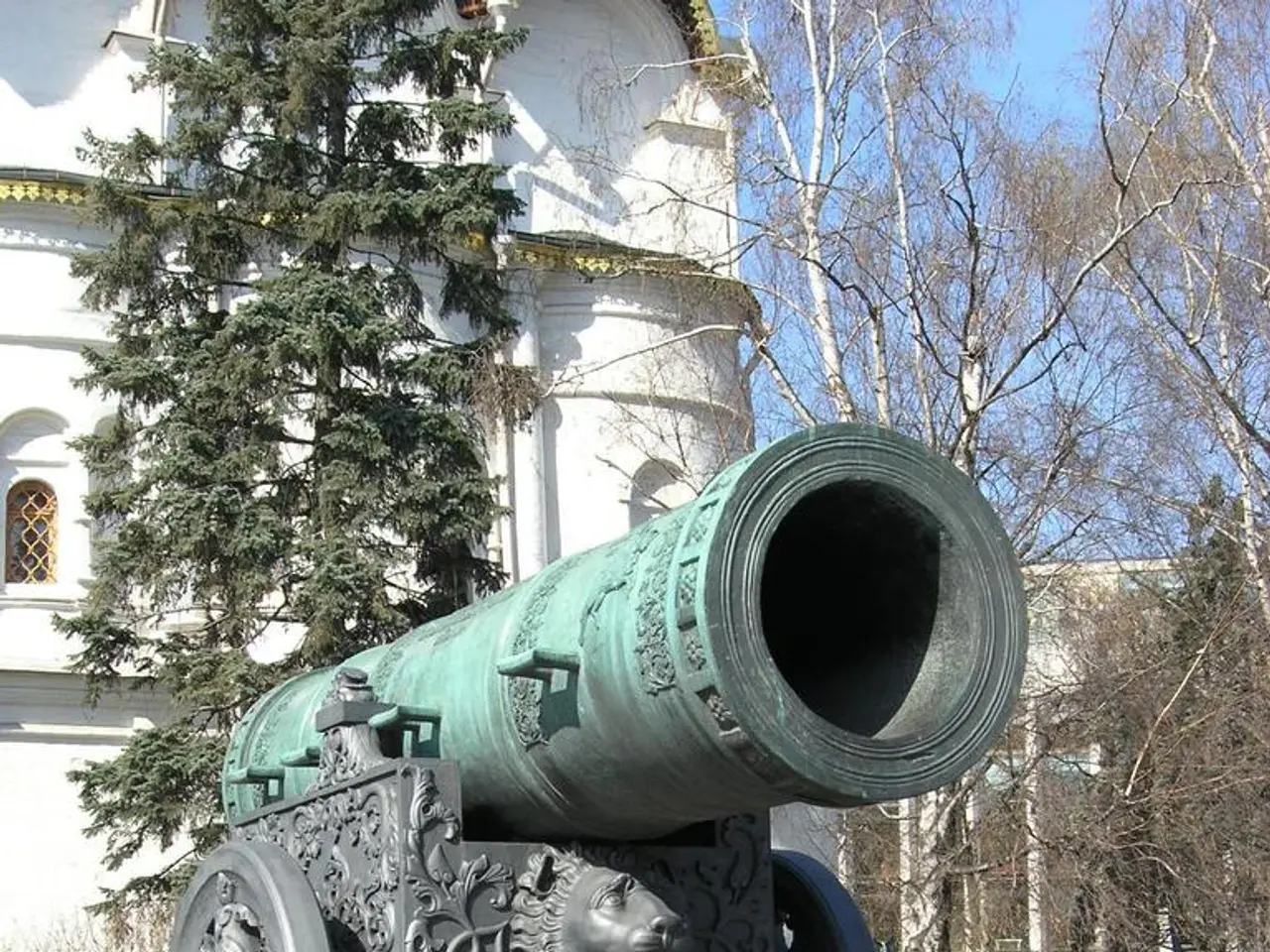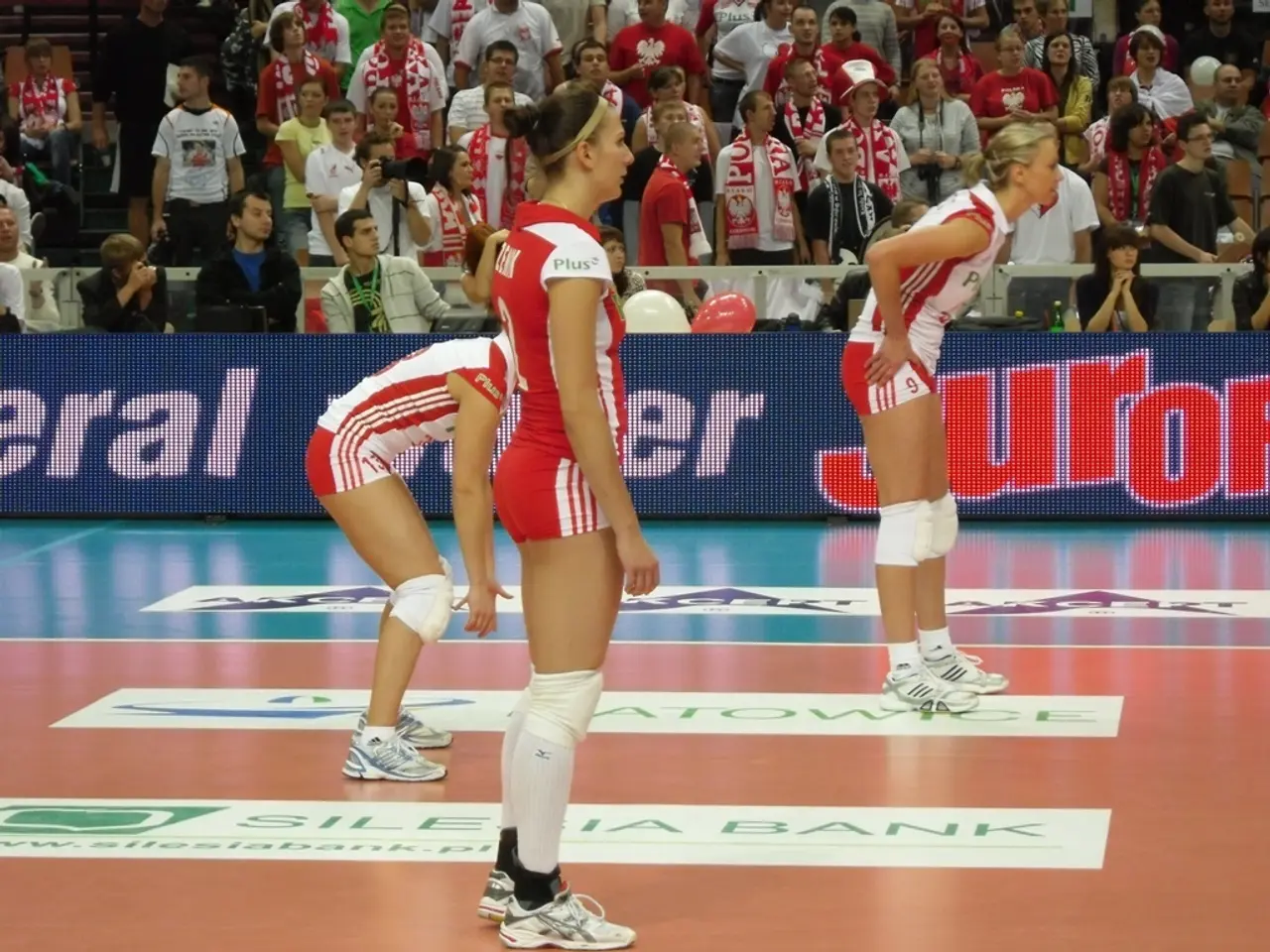Russia's former President Medvedev threatens Trump with Russia's Doomsday nuclear arsenal, intensifying the verbal conflict between them.
In a series of provocative statements, former Russian President Dmitry Medvedev has issued a stark warning to U.S. President Donald Trump, invoking Russia's nuclear retaliatory capabilities.
Medvedev, now deputy chairman of Russia's Security Council, made the reference to the Cold War-era Russian automated nuclear retaliation system, known as "Perimeter" or the "Dead Hand," in a social media post. This system is designed to ensure a retaliatory nuclear strike even if the Russian command structure is destroyed in a nuclear attack.
The warning comes in response to Trump's threats of sanctions and what Medvedev regarded as provocative ultimatums. Medvedev's statement is a strategic deterrence warning, serving as a reminder of Russia's nuclear arsenal and the severe consequences of a conflict.
Trump responded by announcing the redeployment of two U.S. nuclear submarines to strategic locations, further escalating the rhetoric and military posturing between the two nuclear powers.
Trump has also criticised India's high tariffs and stated that the U.S. does almost no business with India. However, it seems that Trump does not seem to care about what India, one of Russia's biggest oil buyers, does with Russia.
Medvedev's statements reflect thinking in senior Kremlin policy-making circles, according to some Western diplomats. He has been identified as one of the Kremlin's most outspoken anti-Western hawks since Russia's invasion of Ukraine in 2022.
In July, Trump warned Medvedev about using the "N (nuclear) word" after criticising U.S. strikes on Iran. Trump also rebuked Medvedev on his Truth social network, referring to him as an irresponsible loose cannon.
Despite the escalating tensions, Moscow has not indicated it will comply with Trump's deadline for a ceasefire in Ukraine. Trump previously set a deadline of July 29 for Russia to agree to a ceasefire or face tariffs.
Medvedev's warning about the potential dangers of the 'Dead Hand' system serves both as a symbolic and practical reminder of Russia’s nuclear retaliatory capabilities and raises the stakes in U.S.-Russia relations by highlighting the potential for catastrophic escalation. It is a stark reminder of the need for diplomacy and dialogue in resolving international conflicts.
War-and-conflicts are escalating, as Russia's deputy chairman of the Security Council, Medvedev, warns about the potential dangers of the "Dead Hand" system, reminding the world of Russia's nuclear arsenal and the severe consequences of a conflict. This warning comes within the context of the ongoing tensions between Russia and the U.S., with politics playing a significant role in shaping the general news landscape.






